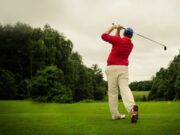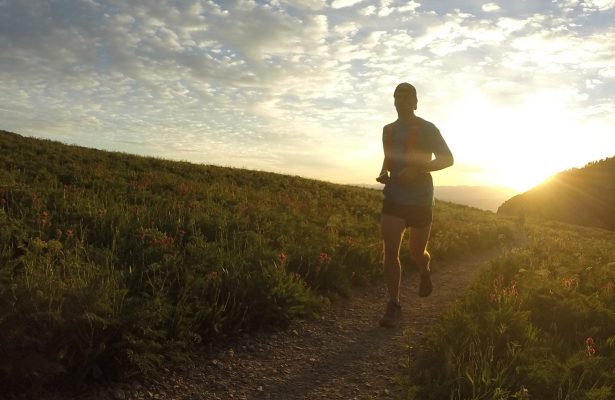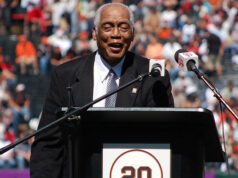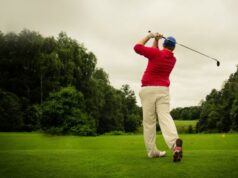True stories of ordinary people facing extraordinary hardships and how they found the Resiliency of an Athlete.
By: Dr. Paul Schienberg, PhD
Sample Chapter:
A Disability Disappears on the Soccer Field
Edmund’s Story
I was born in Ghana. According to my mother, I began walking at eight months of age, like many other children. When I was two years old, I had a life-altering accident. My female cousin was supposed to take care of me in her backyard while my mother lefthome for the village market. While my cousin was trying to cross a very huge drainage system gutter with me, a cloth of some kind that was connecting me to her got loose. I fell straight into the gutter and my cousin fell on top of me. That is how my problems started.
My parents tried very hard to make me better, but my condition kept getting worse and worse. This was in the early 1980s. They were giving polio vaccinations, but they weren’t very effective. I was sent to a doctor at the Salvation Army missions in Ghana, and it was there that they diagnosed me as having the polio that started after the accident.
I underwent a surgical procedure because the doctor said the bones in my right leg were locked up. After the surgery, my parents were advised to take me for some orthopedic training and I was admitted to a hospital where I spent nearly five years, with my mother taking care of me. I was taught how to use braces and crutches. During the training, I spent several months on a bed with my legs hung up with some strings a good part of the time. They said this was supposed to help my legs straighten out. After that I was given orthopedic shoes designed for people like me with mobility problems. I was also given a brace for my right leg and it took a while before I mastered it. Soon I started to get around with the help of two crutches, the armpit kind.
I was discharged to go home with my mother, and continued to go to the Salvation Army clinic nearby every Thursday. They provided transportation via Land Rover that would visit the small towns to pick up the children with polio who had undergone the same surgery. The other days I went to school. A while later, I was told to wear orthopedic shoes on both legs, even though only one leg was effected by polio, because the left leg had shrunk.
The challenging journey to “normalcy.”
As I was growing up, I began to make certain decisions for myself. One decision was to stop using orthopedic shoes completely. I wanted to mainstream myself to join my peers. It was very difficult because my mother wanted to follow whatever the doctors recommended. My dad took my side and wanted me to follow my own beliefs.
Ultimately they got me a pair of regular everyday shoes. The next step was to tell my parents that I didn’t want the crutches. They tore the armpits of my shirts. I asked to use the elbow crutches – the ones that I am still using.
I was doing great in school, first junior high school and then senior high. Initially, my parents wanted me to be in a school that was primarily for people with mobility problems. I said no to them because I wanted to feel the way everybody feels at that age. I wanted to feel normal. I started at the school my parents wanted me to attend, but I lasted only a few weeks. I didn’t fit in. So I told my parents I wanted to change schools.
Again, my dad talked to my mother and they started looking elsewhere till they found a Catholic boys’ school. It was my first time being in a boarding school and at first it was very difficult trying to make myself known. I had to lobby for myself. I had to advocate to get somebody to give me some sort of help. For example, whenever the tap was not flowing, I had to ask one of my roommates to fetch a bucket of water from a pipe somewhere and bring it into the bathroom for me. It was an opportunity for me to become independent. I started growing, growing, and growing. It happened exactly the way I wanted it, but I was still always on the sidelines seeing my friends, my classmates playing soccer whenever they had time after class hours. I had not completely accepted my disability. I kept asking God, “Why me? Why did all my friends have legs the way they wanted them to be?” They were running, doing whatever they wanted to do. I was the only person with mobility disability in that school.
Day after endless day of sadness, looking at them playing without me, and finally I realized I had to accept my disability. It hit me that this was the only solution. It might not be the permanent solution to my problem, but it might uplift me and help me do things. So, one afternoon, I found myself accepting my disability. The next day, I approached my friends in that frame of mind.
“I’d like to play with you guys.”
They said, “No.”
Same game, new rules on and off the field
They were trying to tell me that there was no way I could play soccer because of my mobility issues, but somehow, In the course of this back and forth conversation, they agreed to let me play. Then something dawned on me.
“When the ball hits your hand it’s a foul, right?”
“Yes,” they agreed.
“How about, if the ball touches my leg, it’s a foul because I will be playing with my hands.”
Initially they didn’t like the idea. But one of the guys piped up and said, “I think it’s a good idea. Let’s give it a try and give him a chance to play with us. We’ll see how it goes.” The others jumped on board. So that afternoon as we all started to play, I put down my crutches and was crawling with my hands on the floor. As I “kicked” the ball with my hands, something wonderful happened. I was scoring more goals than all of them! I was able to do the corner kick and hit the post and sometimes the ball hit the top right corner of the goal where the goalkeeper could not reach it. From that day, they accepted me as one of the soccer players on campus – not with the soccer team, but playing in a more leisurely way. They even wanted me to participate in their training sessions.
END OF EXCERPT
Commentary by Paul Schienberg:
In the first section of Edmund’s story, he lays out a remarkable series of traumatic medical events and treatments that exploded into the beginning years of his life. Some of these terrible occurrences were accidental, some biological and some intentional. None were created to willfully cause harm to Edmund. Edmund never thought of them as a victim of life. Nonetheless, the accident, the polio, the surgeries, the treatments occupied so many years of his formative years. Obviously, they formed the major forces and the content of his young life journey. Along with the details of these horrific attacks on his body, a psychological theme began to surface.
Despite the best of intentions by a cousin to take care of him while his mother went to work, his parents getting him services he needed, doctors who did the best they could to heal his fragile body, orthopedic trainers to teach him how to use equipment intended to help him be mobile and overcome his physical challenges, sometimes they created more problems than they solved.
Certainly there were some gains that young Edmund made, but far from enough to have an independent life. He somehow concluded that he needed to take control of his life if he was going to thrive.
His mother wanted to follow the directions of the many doctors that tried to improve Edmund’s life circumstance. On the other hand, his father was willing to listen to what Edmund wanted. So, his first decision was to stop wearing orthopedic shoes and his second decision was not to use the crutches that tore up his armpits and begin using elbow crutches. Edmund began to trust himself and listen to his body.
His parents wanted him in a special school for children with mobility problems.
Again, Edmund revolted. He wanted to be feeling like everyone else. So, he went to a Catholic boarding school for boys. He was on his own and had to advocate for things that he needed to take care of himself, and he did. He learned how to manipulate his environment to get what was necessary for his body. With each physical challenge he figured out what his body needed to thrive at school. Edmund was growing normally. He was on the sidelines while his new friends were playing soccer.
But, one day he came to an important psychological position of accepting his disability, not in a defeated sense. He became friends with his whole body. He came up with an amazing idea – If the ball touched his legs it was a foul and he could use his hands to move the soccer ball. He turned the rules of soccer on its head and he began to play with his friends. He learned to change the sports world to adapt to his physical condition. He scored more goals than his “normal” friends. Edmund became one of them and a full member of the school community. As a member of the soccer team, Edmund thrived. Team sports gave him a sense of himself as being a legitimate part of the school, his community, country and the world.
A few years later, Edmund was learned how to play wheelchair basketball. As a member of one of the basketball teams, he traveled to many countries in Africa. Later in life, he moved to the United States and started participating in another sport. He found Achilles International. This organization gave him a hand-cranked wheelchair and he learned how to use the gears from one of the trainers. Today he helps others use the same device.
Sports helped him overcome and give others the ability to use the hand-crank wheelchair. Team sports has given him the opportunity to give back what he had been given by others. Edmund learned that we all need help and we all need to find our place in the world. Sports can help us achieve all these things and more…















